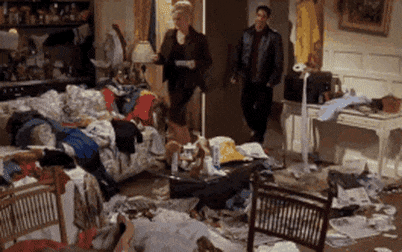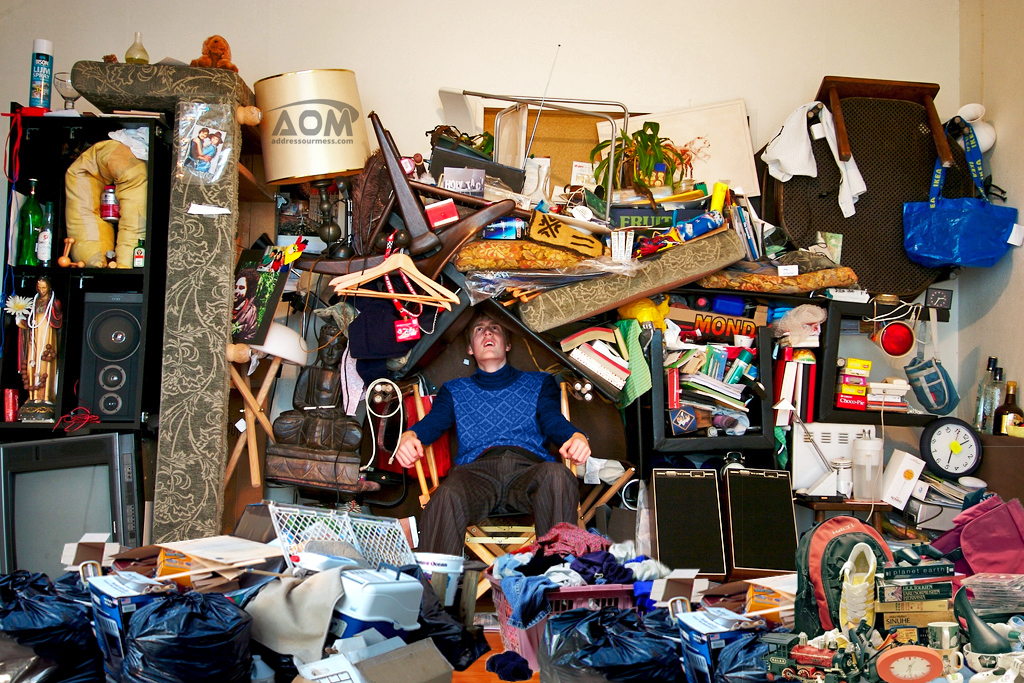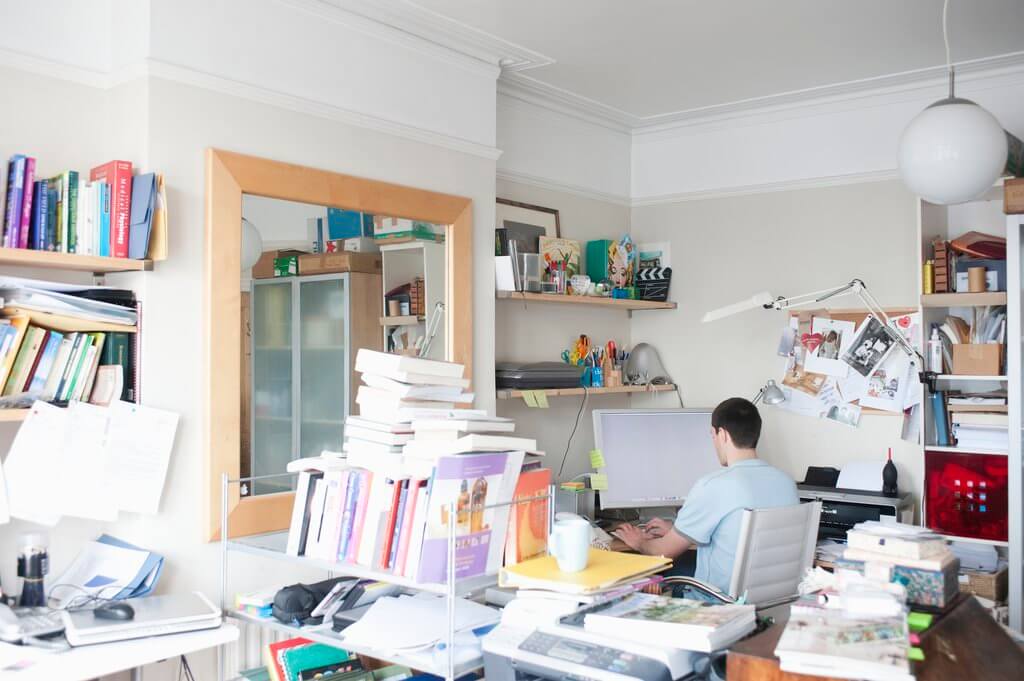We’ve all been there. You come home at the end of the day and you’re already feeling drained, but you walk into a mess.
Kid’s toys scattered all over the floor, dirty clothes lying just outside the laundry bin (why not just in the actual bin??), dirty dishes overflowing from a previously empty sink…
This kind of mess can start to wear on your mental state.
You’re not going crazy.
Like we discussed in The Duty to Declutter: Why Clutter is Effectively Ruining your Life, psychologist Sherry Carter claims that “clutter can play a significant role in how we feel about our homes… messy homes and workplaces leave us feeling anxious, helpless and overwhelmed….”
Somehow though, most people don’t seem to realize that clutter is at the root of why they’re feeling so stressed out.
To refresh, Carter believes there are eight reasons why clutter is the cause of our anxiety.
1. Clutter makes us feel overwhelmed since it exposes us to a lot of unimportant stimuli, thereby causing our senses to work overtime.
2. It takes our attention away from things we should focus on (family, friends, making cookies).
3. It makes it more difficult for us to relax mentally and physically.
4. It signals to our brains that our work is never finished.
5. It makes us think about how we’re going to tidy up all the mess (this can be the overwhelming part).
6. It makes us feel guilty for not being more organized or embarrassed to invite people into our homes.
7. It hinders our productivity and creativity.
8. It frustrates us by making it more difficult for us to find what we need (causing time and money loss).
However, unlike some things in life that you don’t have control over, clutter is something you can conquer.
We covered all of these things a few weeks ago… and now I want to dive into how to combat the clutter.
The best advice any professional organizer can give you: let someone help you.
You may be feeling anxious, overwhelmed, unsure where to start… but you deserve the help!
Carter also suggests a few things:
1. If your house is full of stacks of clutter, don’t clean out things by yourself. Instead, hire a professional to come in.
We talked about organizational foundation last week in The Complete Guide to Professional Home Organizing: What it is and why you need it.
We also talked about why it’s important
A lot of my clients say they feel overwhelmed. The best thing to do is just get started.
Start in one space and move through the room one section at a time.
2. You can prevent clutter from invading by creating a specific home for each item you own.
In this way, you’ll be able to find what you are looking for faster and more easily (referencing again that organizational foundation we talked about!)
However, storing items out in the open can still trigger stress.
I often suggest to my clients that if you’re storing something out in the open, it should be decorative, and the clutter and non-decorative items should be stored in closed spaces (drawers, decorative baskets or in cabinets!)
3. Get rid of things you don’t use, want, or need.
I tell my clients to always be thinking of two questions when they’re actively decluttering: one, “have I used this in the past year?” and two, “do I love this?”.
Whether you recycle it, donate it, sell it or just toss it out, it doesn’t matter – just make sure it no longer takes up space in your home.
As for the items you rarely use, you can keep them in spaces you have extra space. This could mean a storage room, on a shelf in the garage or somewhere in your home where it’s being stored for it’s next use.
4. After you’ve finished using something, put it back to its “home” right away.
If you ask tidy people how they keep their house clean, they will always tell you that the number one rule to follow is to NEVER let it pile up.
This is an issue for many of the clients I’ve worked with. They always say they’re overwhelmed and they don’t know where to start.
If you build the right habits, staying organized can even become easy!
5. Make a “pending” folder or plastic tote.
This will help you clear off your workspace — it’s true that a cluttered desk is a cluttered mind.
Find simple ways to reduce the clutter while also storing all your important paperwork and pending projects in one place.
6. Make sure you don’t let papers turn into piles.
Mail can be a major problem for many of our clients. Letting it pile up will only result in stress and oftentimes, embarrassment.
Many of our clients are reluctant to let someone in to their personal mess, but it’s pertinent you do because procrastination will only make it worse.
7. Tidy up your workspace after you’ve finished working.
Doesn’t it feel good to work on a clean slate?
Am I the only one who cleans the kitchen BEFORE I start cooking or baking?
Who else out there likes to clean their home before they go on a trip, just for the instant gratification of coming home to clean house??
It’s just satisfying!
8. Last but not least, don’t forget to make it fun.
Whenever I’m organizing for a client or even re-organizing my own home (because yes, it bugs me sometimes too!), I always put on something fun in the background.
There’s something fun and soothing about listening to some upbeat music or listening to your favorite TV show that makes the organization something to look forward to!
This even makes you work faster!
After really diving into the “why” of anxiety and clutter, I felt it was important to cover how you can actually attack the clutter!
Make sure to always follow us on Facebook at Clutterless Home Solutions and instagram @clutterlesshomesolutions and our Youtube channel for the latest tips and tricks to getting your home organized!
Until next time, happy organizing!



